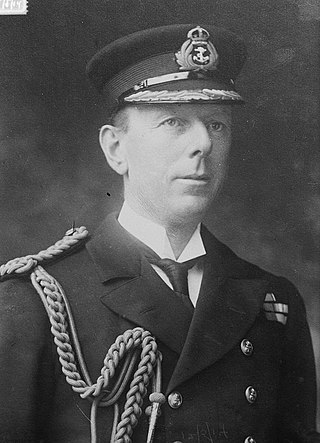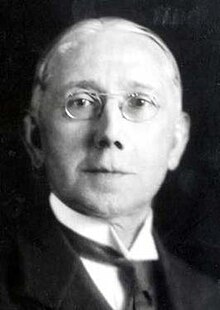
Sir Charles Kingsley Webster was a British diplomat and historian. He was educated at Merchant Taylors' School,Crosby and King's College,Cambridge. After leaving Cambridge University,he went on to become a professor at Harvard,Oxford,and the London School of Economics (LSE). He also served as President of the British Academy from 1950 to 1954.
Hawick Rugby Football Club is an semi-pro rugby union side,currently playing in the Scottish Premiership and Border League. The club was founded in 1885 and are based at Mansfield Park at Hawick in the Scottish Borders.
Sir George Bailey Sansom was a British diplomat and historian of pre-modern Japan,particularly noted for his historical surveys and his attention to Japanese society and culture.
Arthur Malcolm Trustram Eve,1st Baron Silsoe,known as Sir Malcolm Trustram Eve,1st Baronet,from 1943 to 1963,was a British barrister and First Church Estates Commissioner.
The politics of Saarland takes place within a framework of a federal parliamentary representative democratic republic,where the Federal Government of Germany exercises sovereign rights with certain powers reserved to the states of Germany including Saarland. The state has a multi-party system where the two main parties are the rightist Christian Democratic Union (CDU) and the leftist Social Democratic Party of Germany (SPD).

Admiral Sir Stanley Cecil James Colville,was a senior Royal Navy officer.
Sir Horace James Seymour was a British diplomat who served in Washington,D.C.,Tehran,the Hague,Rome,and Chongqing. He was Principal Private Secretary to the British Foreign Secretary and Assistant Under-Secretary of State at the Foreign Office. His most senior appointment was as British Ambassador to China from 1942 to 1946.

Sir Michael Henry Herbert,,was a British diplomat and ambassador.

General Sir Henry Colville Barclay Wemyss,was a senior British Army officer who served as Adjutant-General to the Forces from 1940 to 1941.
Sir Stephen Henry Roberts CMG was an Australian academic,writer,historian,international analyst,and university vice-chancellor.
Cecil Vere Davidge of Little Houghton House DL was a British lawyer and academic,who served as a Fellow and bursar of Keble College,Oxford,and as High Sheriff of Northamptonshire.

Sir Francis Oswald Lindley was a British diplomat who was HM Consul-General in Russia in 1919,British High Commissioner in Vienna 1919–1920,Ambassador to Austria 1920–1921,Ambassador to Greece 1922–1923,Minister in Oslo 1923–1929,Ambassador to Portugal 1929–1931,and finally Ambassador to Japan 1931–1934. Lindley was described as "a rather tough old character in some respects and very outspoken in his likes and dislikes."
Sir Odo William Theophilus Russell was a British diplomat who was ambassador to Switzerland,the Vatican and the Netherlands.
The Hon. Sir Patrick Ramsay was a British diplomat who was minister to Greece,Hungary and Denmark.
Captain Sir Ernest Whiteside Huddleston was a British military commander who was Deputy Director and officiating Commander of the Royal Indian Marine. He was later Shipping Surveyor and Adviser to the High Commissioner for India and ADC to the Viceroy.
Sir Robert Daniel Richmond was Chief Conservator of Forests in India and played cricket for Jamaica.
Major General Sir William Louis Oberkirch Twiss,was a senior British Indian Army officer.
Sir Geoffrey Harington Thompson,GBE,KCMG was a British diplomat. He was British Ambassador to Thailand from 1946 to 1950 and British Ambassador to Brazil from 1952 to 1956.
Lieutenant-general Sir Ernest William Charles Bradfield was an English first-class cricketer and British Army officer. Graduating from St Mary's Hospital Medical School,he joined the Indian Medical Service in 1903 and would serve in campaigns in the North-West Frontier Province of British India and in the Mesopotamian campaign of the First World War. He would go onto hold a number of senior appointments within the Indian Medical Service,rising to the rank of lieutenant-general. Bradfield was noted as being infleuential in the establishment of the Indian Army Medical Corps during the Second World War. In addition to his lengthy and decorated military career,Bradfield also played first-class cricket on four occasions for the Europeans cricket team in India.





